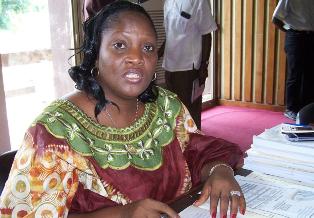Addressing the Core Problems of the Men and Women on the Field
Upon returning from the West African State of Mali recently, a senior Liberian Government official called for more support to Liberian soldiers on peace-keeping mission in that country.
Atty, Senator Steve Zartgo – Chairman of the Senate’s Committee on National Defense and Security, emphasized the urgent need for the government to either step up support to its military troops in Mali or bring them back home – apparently considering the condition(s) under which they current operate.
“Let me tell you what I told the full Senate… if we want to remain engaged, if we want to have our military engaged in Mali, let support them; if we can’t support them, then withdraw them,” Senator Zargo told a State Radio live talk show Monday, indicating that under the current arrangements, contributing countries were responsible for their own equipment without relying on the United Nations for such support.
According to him, amid constraints, including budgetary support, the Liberian troops very doing very well since arriving in 2012 on peace-keeping mission in Mali engulfed in crisis.
[bsa_pro_ad_space id=1]
Since the deployment of the second batch of platoon of soldiers of the Armed Forces of Liberia following the return of the first more than a year now, very little is heard from the Ministry of National Defense about the troops’ , especially as it relates to their wellbeing and logistics.
The fact that such senior ranking official as the Chairman on the Senate’s Committee on National Defense and Security could visit and realize the appalling conditions under which our “peace-keepers” operate, the urgent need for intervention measures by the government cannot be over-emphasized; and this does not only rest with the Executive Branch, but also requires the inputs of both Liberian Senate and House of Representatives.
While we do appreciate and welcome the submission of a proposal to the Security committee of the House of Representatives and the Senate Pro-tempore, requesting for a national security dialogue and review to address many of these national security issues, urgently relieving our troops of the current constraints the face with logistics must also be inclusive of the on-going budgetary hearings on Capitol Hill. In other words, the current budgetary allotment of the Ministry of national Defense must be augmented to mainly accommodate Liberia’s military troops serving in the UN Peace-keeping mission in Mali as a matter of boosting their morale.
Senator Steve Zargo of Lofa County must also be commended for publicly raising the issue regarding the plight of our troops in Mali; and we can only hope that the National Security dialogue being proposed to the House of Representatives will quickly be held to address the problems of our National Security apparatus.
“This time around in our country, we are good with our neighbors- we got a good diplomatic relationship with Sierra Leone, Guinea and Cote d’Ivoire; we got – and I’m told there is an intervention force somewhere between Liberia and Ivory Coast there to help in case of any problem. So we’re good externally,” Senator Zargo intimated, expressing the belief that Liberia has some internal security problems, including broad day armed robbery and other criminal activities.
Owing to these foreseen internal security threats, as emphasized byChairman Zargo of the Liberian Senate, such dialogue must not only be another “talking shop or wining and dining”, but one that will actually consider the plights of our national apparatus – especially the Armed Forces of Liberia, Liberia National Police, Drug Enforcement Agency as well as the Bureau of Immigration and Naturalization, among others.
The issue of attractive salaries, benefits, incentives and other conditions under which they work must also be the hallmark of such proposed National Security dialogue, and that the diversionary attitudes exhibited by heads and other executives of these security institutions in the payment and distribution processes among the men and women in the field must also be at the core of the dialogue, so that we disabuse their minds of all forms of CORRUPTION at our borders and internal checkpoints, as well as other internal operations.




















